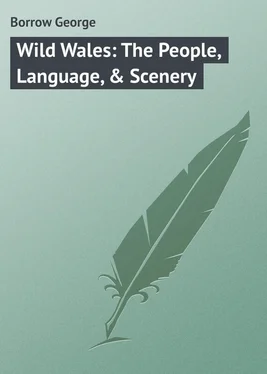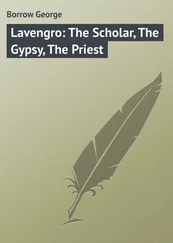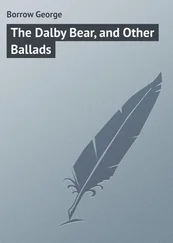George Borrow - Wild Wales - The People, Language, & Scenery
Здесь есть возможность читать онлайн «George Borrow - Wild Wales - The People, Language, & Scenery» — ознакомительный отрывок электронной книги совершенно бесплатно, а после прочтения отрывка купить полную версию. В некоторых случаях можно слушать аудио, скачать через торрент в формате fb2 и присутствует краткое содержание. Жанр: foreign_prose, Путешествия и география, на английском языке. Описание произведения, (предисловие) а так же отзывы посетителей доступны на портале библиотеки ЛибКат.
- Название:Wild Wales: The People, Language, & Scenery
- Автор:
- Жанр:
- Год:неизвестен
- ISBN:нет данных
- Рейтинг книги:5 / 5. Голосов: 1
-
Избранное:Добавить в избранное
- Отзывы:
-
Ваша оценка:
- 100
- 1
- 2
- 3
- 4
- 5
Wild Wales: The People, Language, & Scenery: краткое содержание, описание и аннотация
Предлагаем к чтению аннотацию, описание, краткое содержание или предисловие (зависит от того, что написал сам автор книги «Wild Wales: The People, Language, & Scenery»). Если вы не нашли необходимую информацию о книге — напишите в комментариях, мы постараемся отыскать её.
Wild Wales: The People, Language, & Scenery — читать онлайн ознакомительный отрывок
Ниже представлен текст книги, разбитый по страницам. Система сохранения места последней прочитанной страницы, позволяет с удобством читать онлайн бесплатно книгу «Wild Wales: The People, Language, & Scenery», без необходимости каждый раз заново искать на чём Вы остановились. Поставьте закладку, и сможете в любой момент перейти на страницу, на которой закончили чтение.
Интервал:
Закладка:
“My parents wanted me at home, sir,” said he; “and I was not sorry to go home; I earned little, and lived badly.”
“A shepherd,” said I, “can earn more than five shillings a week.”
“I was never a regular shepherd, sir,” said he. “But, sir, I would rather be a weaver with five shillings a week in Llangollen, than a shepherd with fifteen on the mountain. The life of a shepherd, sir, is perhaps not exactly what you and some other gentlefolks think. The shepherd bears much cold and wet, sir, and he is very lonely; no society save his sheep and dog. Then, sir, he has no privileges. I mean gospel privileges. He does not look forward to Dydd Sul, as a day of llawenydd, of joy and triumph, as the weaver does; that is if he is religiously disposed. The shepherd has no chapel, sir, like the weaver. Oh, sir, I say again that I would rather be a weaver in Llangollen with five shillings a week, than a shepherd on the hill with fifteen.”
“Do you mean to say,” said I, “that you live with your family on five shillings a week?”
“No, sir. I frequently do little commissions by which I earn something. Then, sir, I have friends, very good friends. A good lady of our congregation sent me this morning half-a-pound of butter. The people of our congregation are very kind to each other, sir.”
“That is more,” thought I to myself, “than the people of my congregation are; they are always cutting each other’s throats.” I next asked if he had been much about Wales.
“Not much, sir. However, I have been to Pen Caer Gybi, which you call Holy Head, and to Bethgelert, sir.”
“What took you to those places?”
“I was sent to those places on business, sir; as I told you before, sir, I sometimes execute commissions. At Bethgelert I stayed some time. It was there I married, sir; my wife comes from a place called Dol Gellyn near Bethgelert.”
“What was her name?”
“Her name was Jones, sir.”
“What, before she married?”
“Yes, sir, before she married. You need not be surprised, sir; there are plenty of the name of Jones in Wales. The name of my brother’s wife, before she married, was also Jones.”
“Your brother is a clever man,” said I.
“Yes, sir, for a Cumro he is clebber enough.”
“For a Cumro?”
“Yes, sir, he is not a Saxon, you know.”
“Are Saxons then so very clever?”
“O yes, sir; who so clebber? The clebberest people in Llangollen are Saxons; that is, at carnal things – for at spiritual things I do not think them at all clebber. Look at Mr. A., sir.”
“Who is he?”
“Do you not know him, sir? I thought everybody knew Mr. A. He is a Saxon, sir, and keeps the inn on the road a little way below where you live. He is the clebberest man in Llangollen, sir. He can do everything. He is a great cook, and can wash clothes better than any woman. O, sir, for carnal things, who so clebber as your Countrymen!”
After walking about four miles by the side of the canal we left it, and bearing to the right presently came to the aqueduct, which strode over a deep and narrow valley, at the bottom of which ran the Dee. “This is the Pont y Cysswllt, sir,” said my guide; “it’s the finest bridge in the world, and no wonder, if what the common people say be true, namely that every stone cost a golden sovereign.” We went along it; the height was awful. My guide, though he had been a mountain shepherd, confessed that he was somewhat afraid. “It gives me the pendro, sir,” said he, “to look down.” I too felt somewhat dizzy, as I looked over the parapet into the glen. The canal which this mighty bridge carries across the gulf is about nine feet wide, and occupies about two-thirds of the width of the bridge and the entire western side. The footway is towards the east. From about the middle of the bridge there is a fine view of the forges on the Cefn Bach and also of a huge hill near it called the Cefn Mawr. We reached the termination, and presently crossing the canal by a little wooden bridge we came to a village. My guide then said, “If you please, sir, we will return by the old bridge, which leads across the Dee in the bottom of the vale.” He then led me by a romantic road to a bridge on the west of the aqueduct, and far below. It seemed very ancient. “This is the old bridge, sir,” said my guide; “it was built a hundred years before the Pont y Cysswllt was dreamt of.” We now walked to the west, in the direction of Llangollen, along the bank of the river. Presently we arrived where the river, after making a bend, formed a pool. It was shaded by lofty trees, and to all appearance was exceedingly deep. I stopped to look at it, for I was struck with its gloomy horror. “That pool, sir,” said John Jones, “is called Llyn y Meddwyn, the drunkard’s pool. It is called so, sir, because a drunken man once fell into it, and was drowned. There is no deeper pool in the Dee, sir, save one, a little below Llangollen, which is called the pool of Catherine Lingo. A girl of that name fell into it, whilst gathering sticks on the high bank above it. She was drowned, and the pool was named after her. I never look at either without shuddering, thinking how certainly I should be drowned if I fell in, for I cannot swim, sir.”
“You should have learnt to swim when you were young,” said I, “and to dive too. I know one who has brought up stones from the bottom, I dare say, of deeper pools than either, but he was a Saxon, and at carnal things, you know, none so clebber as the Saxons.”
I found my guide a first-rate walker, and a good botanist, knowing the names of all the plants and trees in Welsh. By the time we returned to Llangollen I had formed a very high opinion of him, in which I was subsequently confirmed by what I saw of him during the period of our acquaintance, which was of some duration. He was very honest, disinterested, and exceedingly good-humoured. It is true, he had his little skits occasionally at the Church, and showed some marks of hostility to the church cat, more especially when he saw it mounted on my shoulders; for the creature soon began to take liberties, and in less than a week after my arrival at the cottage, generally mounted on my back, when it saw me reading or writing, for the sake of the warmth. But setting aside those same skits at the Church and that dislike of the church cat, venial trifles after all, and easily to be accounted for, on the score of his religious education, I found nothing to blame and much to admire in John Jones the Calvinistic Methodist of Llangollen.
CHAPTER XIII
Divine Service – Llangollen Bells – Iolo Goch – The Abbey – Twm o’r Nant – Holy Well – Thomas Edwards.
Sunday arrived – a Sunday of unclouded sunshine. We attended Divine service at church in the morning. The congregation was very numerous, but to all appearance consisted almost entirely of English visitors, like ourselves. There were two officiating clergymen, father and son. They both sat in a kind of oblong pulpit on the southern side of the church, at a little distance below the altar. The service was in English, and the elder gentleman preached; there was good singing and chanting.
After dinner I sat in an arbour in the perllan thinking of many things, amongst others, spiritual. Whilst thus engaged the sound of the church bells calling people to afternoon service, came upon my ears. I listened and thought I had never heard bells with so sweet a sound. I had heard them in the morning, but without paying much attention to them, but as I now sat in the umbrageous arbour I was particularly struck with them. O, how sweetly their voice mingled with the low rush of the river, at the bottom of the perllan. I subsequently found that the bells of Llangollen were celebrated for their sweetness. Their merit indeed has even been admitted by an enemy; for a poet of the Calvinistic-Methodist persuasion, one who calls himself Einion Du, in a very beautiful ode, commencing with —
Читать дальшеИнтервал:
Закладка:
Похожие книги на «Wild Wales: The People, Language, & Scenery»
Представляем Вашему вниманию похожие книги на «Wild Wales: The People, Language, & Scenery» списком для выбора. Мы отобрали схожую по названию и смыслу литературу в надежде предоставить читателям больше вариантов отыскать новые, интересные, ещё непрочитанные произведения.
Обсуждение, отзывы о книге «Wild Wales: The People, Language, & Scenery» и просто собственные мнения читателей. Оставьте ваши комментарии, напишите, что Вы думаете о произведении, его смысле или главных героях. Укажите что конкретно понравилось, а что нет, и почему Вы так считаете.












